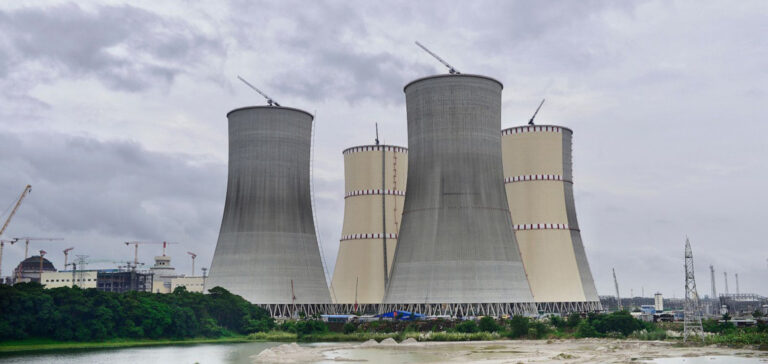Objective: put an end to chronic power outages
Bangladesh hopes that the Rooppur nuclear power plant will put an end to the chronic blackouts that have plagued the country. The country is planning to build a second nuclear power plant in the south, although the exact location has yet to be determined. However, the sanctions imposed by the USA on major Russian companies, including the state nuclear agency Rosatom, have led to delays in construction work due to problems repaying loans in US dollars. To get around these sanctions, Bangladesh agreed to make payments of over $300 million in Chinese yuan in April, although the money has not yet been paid out.
The lack of payment has not hampered Bangladesh’s efforts to strengthen its ties with Russia. Last month, Russian Foreign Minister Sergei Lavrov visited Dhaka for the first time. He criticized American pressure on Bangladesh. Under Ms Hasina’s leadership, the Bangladeshi government is looking for new allies ahead of the general elections in January. However, Western governments and human rights activists criticize the lack of response to political dissent.
A key energy project
The Rooppur power plant is the most expensive infrastructure project undertaken by Mrs Hasina since she came to power in 2009. Once fully operational, it will become the country’s largest power plant in terms of generating capacity. Bangladesh also has other coal- and gas-fired power plants under construction, but is looking to reduce its dependence on fossil fuels. This summer, due to the increased demand for electricity caused by a sweltering heat wave, Bangladesh had to shut down its largest power plant for lack of funding for the necessary coal. Its power grid is showing increasing signs of strain.
In October 2022, a grid failure left at least 130 million people without electricity, and the country suffered a severe energy crisis due to rising fuel and gas prices as a result of the invasion of Ukraine. The country had to shut down diesel power plants with a capacity of 1,500 megawatts, as well as some gas-fired plants.
The Bangladeshi authorities see the country’s nuclear energy ambitions as an essential element in the fight against climate change, given the country’s vulnerability to extreme weather conditions due to its low altitude. The Rooppur power plant will help reduce Bangladesh’s carbon emissions by 2030, according to Shawkat Akbar, Director of the Rooppur power plant.
It is important to note that Bangladesh is striving to diversify its energy mix to meet growing demand while reducing its dependence on fossil fuels, which has major implications for its economic and environmental future.






















